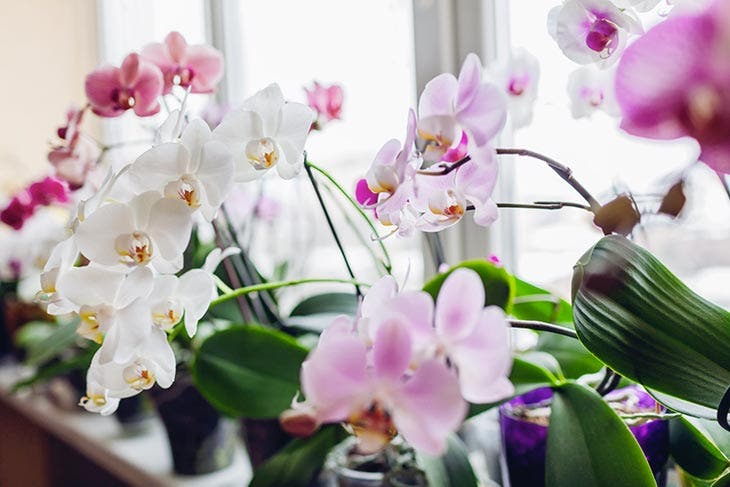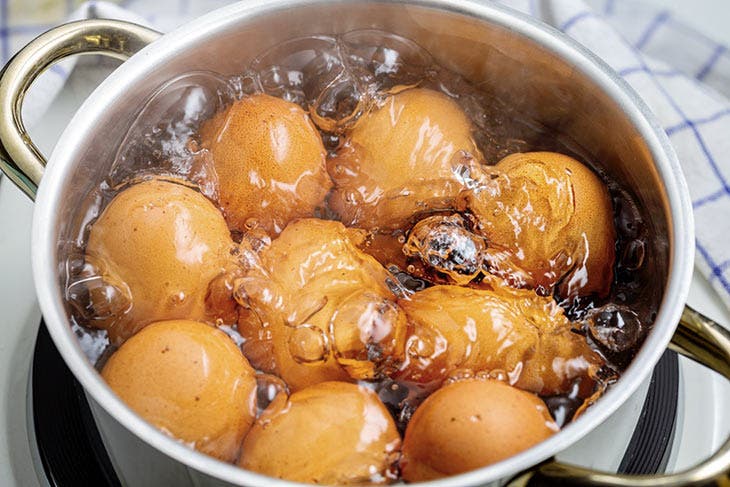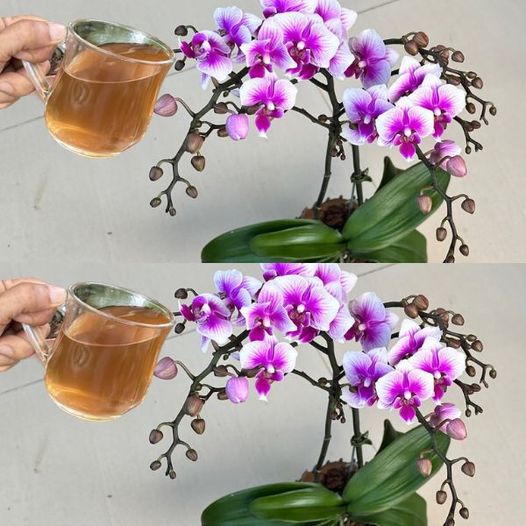Orchids are versatile flowering plants that are easy to grow indoors and come in more than 25,000 species. The best-known commercial variety is the Phalaenopsis orchid, also called the moth orchid. To brighten your interior with brightly colored orchids, discover how to water them to stimulate their flowering.
What can you water orchids with to stimulate their flowering?

Water is an essential element for plants. In addition to hydrating plants, it helps transport nutrients from the soil to plant cells. In addition to this, the evaporation of water caused by the phenomenon of transpiration helps regulate the temperature of the plants and cool them. That said, although water is vital for plants, you can choose to water them, during their growth period, with a liquid fertilizer, which will be responsible for both hydrating the flowering plants and nourishing them, to stimulate their growth and . To enjoy spectacular flowering of orchids, you can water them with green tea.flowering 
Green tea is a very effective fertilizer to stimulate the flowering of orchids and keep them healthy. In fact, it is rich in elements essential for plant growth such as nitrogen, phosphorus and potassium. To use this natural fertilizer, simply infuse some green tea leaves in hot water and let this infusion cool. Then use the solution to water the orchids. This liquid fertilizer can be used once a month, during spring and summer. Also, use this fertilizer sparingly, as any excess could cause flowers and leaves to drop.
In addition to watering your orchids with green tea, you can also take green tea bags and sprinkle their contents over the orchid soil in the pot.
What other fertilizers are there to help orchids bloom?
In addition to watering orchids with a green tea infusion, you can use these liquid fertilizers to enhance their flowering.
- Egg cooking water to make orchids bloom again

After boiling the hard-boiled eggs, save the cooking water. Let it cool and then use it to water your orchids. Eggshell has a good content of calcium, magnesium, carbonate and phosphorus. These minerals pass into the cooking water of the eggs and are used to fertilize the plants.
Continued on next page
ADVERTISEMENT

